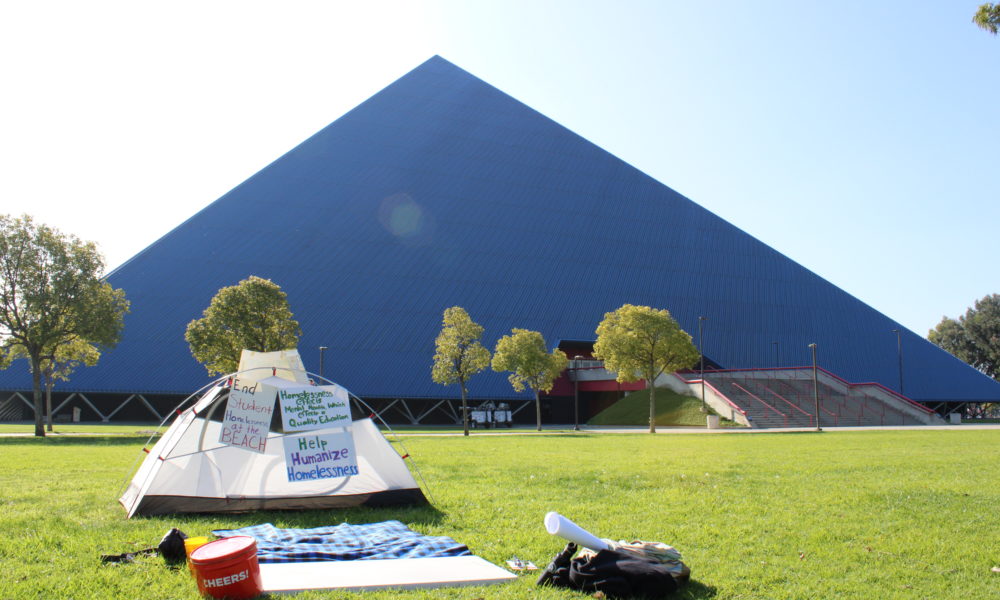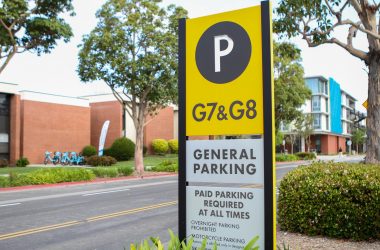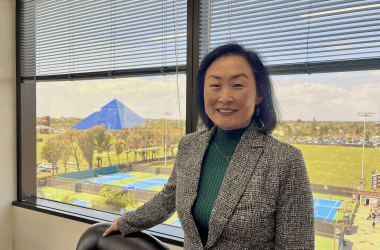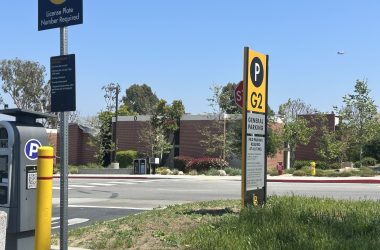By: Catherine Lima and Pristine Tompkin
After being accepted into the Beach and saving up enough money from his job as a waiter in San Diego, fourth-year computer science major Rishikesh Ramhit decided to move to Long Beach for the spring 2020 semester to focus on his studies.
His daily routine consisted of waking up, going to the gym, taking a shower and attending his classes until about 11 p.m., then he would walk to his car to sleep in and start over again the next day.
“Everything was working fine. I didn’t have any complaints or anything. My life was good,” Ramhit said. “Then, when the pandemic came around us, that’s when things started to change.”
The hours started to diminish at places that were open 24 hours a day, where Rahmit would study overnight. Since classes moved online, the resources on campus began to close down, and he no longer had a place to go.
According to a study by the Hope Center, 15% of students at four-year universities have experienced homelessness as a result of the coronavirus pandemic.
Another study conducted by Rashida Crutchfield, associate professor of the School in Social Work at Long Beach State, and Jennifer Maguire, associate professor of social work at Humboldt State University, found that about 11% of California State University students experienced some type of homelessness.
In today’s society, a person facing housing insecurity can mean very different things such as couch surfing, staying with relatives temporarily or not having a roof over one’s head.
That was what life became for Ramhit, and his living situation took a turn for the worst when he was left with a broken leg and bloody nose after being attacked by a former roommate. That was until he contacted the university’s Basic Needs Program.
Schools like CSULB have programs in place to help students and faculty who may be struggling in situations like the one Ramhit experienced. CSULB specifically helped 41.6% of students who were experiencing food insecurity, according to a 2019 study.
Ken Kelly, director of the Beach’s Basic Needs Program, said that the initiative has now become a whole department aimed at helping students.
“The department works with students that are homeless, have food insecurity and have a crisis emergency,” Kelly said.
Within Basic Needs, there are multiple programs such as Beach CalFresh Outreach, which is starting a new Rapid Rehousing program with a local nonprofit organization, Jovenes. Genesis Jara, assistant coordinator of Basic Needs, said that Jovenes helps secure a unit for students to move into with rent and utilities subsidized until they are able to be on their own.
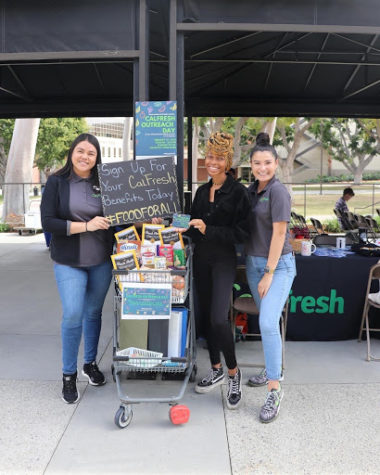
“We’ve helped about 40 students so far, and those are typically students that go through emergency housing,” Jara said. “A main qualification is that they basically have to be out of housing at that point.”
In order to receive some form of assistance, students have to meet certain requirements, such as having an Estimated Family Contribution of zero and being in an unexpected situation due to the pandemic.
The organization aims to provide long-term housing solutions for those who meet the eligibility requirements and will be able to receive money for needs such as furniture. Students can receive up to $1,000 for this program.
As of April 2019, the Beach CalFresh Outreach program has received 1,402 applications from students who are facing food and housing insecurity.
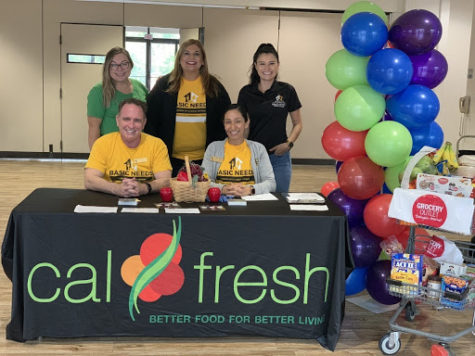
During her time as an undergraduate student at CSULB, Vivian Hernandez received aid from the Beach CalFresh Outreach program. Now, as the coordinator, Hernandez aims to help others who are in need.
“I did not have enough food in my budget every month, and when I found CalFresh through CSULB, I got connected and applied and I was able to receive benefits,” Hernandez said. “I do think that it’s beneficial. It really helps students engage, have a relationship with food and have a relationship with their basic needs.”
A report conducted by the Basic Needs Program found that there was a spike in the number of applications received during the spring 2020 semester, when the COVID-19 pandemic first affected CSULB. Out of 529 applicants, 3.5% of students were placed in emergency housing for 480 days.
According to Jara, the majority of students helped by Basic Needs receive some type of assistance. Although rare, a few cases cannot be helped for various reasons.
Ramhit was one of those students who received emergency housing within the campus dormitories as a result of COVID-19. It became a turning point for him.
“When that happened, things were improving a lot,” Ramhit said. “I was able to do my classes, do my homework and I got a meal on campus that I was able to eat properly.”
Rapid Rehousing Program caseworker Jill Pozucki explained that students must go through a process to be considered eligible for resources.
“We have students fill out an application through our program, Maxient, online and then they get routed to me that way,” Pozucki said.
Despite having struggled with living in his car and experiencing harassment from his former roommate, Rahmit is now looking forward to receiving his Bachelor of Science in Computer Science in spring 2022.
He maintained that he would rather live in his car again than face another negative experience with his old roommate, though he is glad to be in a better place now.
“Unfortunately, living in my car seemed to be more peaceful than having a roof over my head,” Ramhit said. “The good thing is that I learned that I don’t want to be in that situation again, but if someone else is in that situation, I will be able to help them.”
Resources for renters:
Legal Aid Foundation of Los Angeles —https://lafla.org/
Long Beach Residents Empowered: https://www.wearelbre.org/
Fair Housing Foundation — https://fhfca.org/
Check out the rest of the stories looking at Long Beach’s unaffordable housing crisis as part of The Housing Issue:
How CSULB lost an affordable housing opportunity in Downtown Long Beach
CSULB explores alternatives after losing ‘Broadway Block’ housing project
CSULB graduates continue to struggle with finding affordable housing in Long Beach
Basic Needs Program assists CSULB students facing housing insecurity

